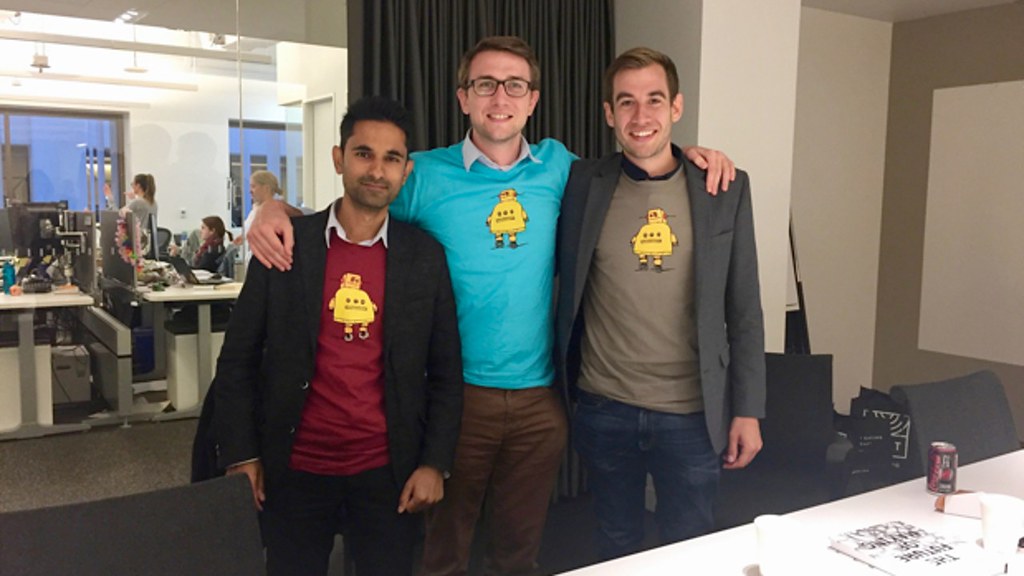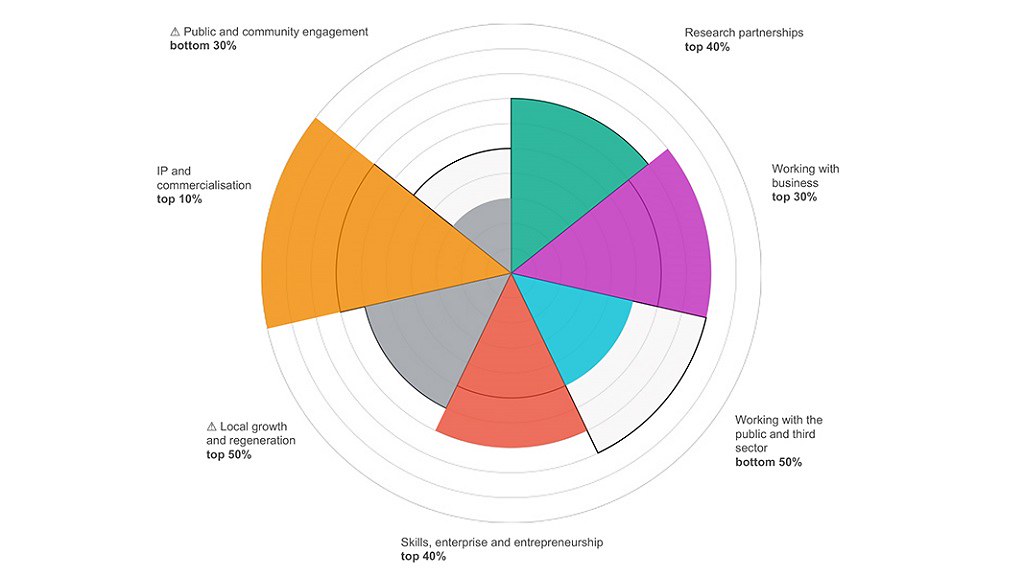About KE
Knowledge Exchange is an umbrella term that encompasses a range of ways in which researchers engage with non-academic organisations. The ESRC defines Knowledge Exchange as:
The enabling of two-way exchange between researchers and research users to share ideas, research evidence, experiences and skills.
According to the University of Bath's key findings in response to the 2021 survey from CEDARS (Culture, Employment and Development of Academic Researchers Survey) over half of research staff want to engage in wider activities, such as knowledge exchange, citizen science, public engagement, and policy and decision making. Specifically, 67% said they wanted to get involved in knowledge exchange.
The University of Bath Strategy 2021 to 2026 outlines our mission to deliver world-class research and teaching, educating our students to become future leaders and innovators, and benefiting the wider population through our research, enterprise and influence.
This resource outlines some KE case studies, funding available for KE, training courses and the KE Community of Practice, which was established for people interested in KE to come together and ask questions. There is also information on why KE has gained in prominence recently, through the Knowledge Exchange Concordat and the Knowledge Exchange Framework.
See also:
- information on responding to tenders and the Knowledge Exchange tender process
- See our most recent KE Highlights Report for 2021-22
KE mechanisms
Examples of KE activities include collaborative or contract research, consultancy services, Knowledge Transfer Partnerships, training, commercialisation of research through start up and spin-out companies, and public engagement.
See our list of mechanisms for achieving Knowledge Exchange and Research Impact.
Support from RIS
Research and Innovation Services (RIS) at the University of Bath can support you with KE and impact. This includes:
- Business Partnerships and Knowledge Exchange - helping you build relationships with external partners, apply for funding and manage projects
- Supporting your research impact - helping you identifying and evidencing the impact of your research
- Consultancy Services - helping you to provide expert advice externally
- Knowledge Transfer Partnerships (KTPs) - helping bring together academics, graduates and businesses on strategic projects
- Technology Transfer - helping you to commercialise your research outcomes
- SETsquared Bath Innovation Centre - supporting the growth and success of new business through world-leading incubation services, enterprise activities and investment networks
Human Library

This Human Library enables researchers at the University to find Knowledge Exchange experts to start conversations around KE experiences and mechanisms.
Watch: KE film series
Watch our film series on how Knowledge Exchange can lead to Research Impact featuring our Associate Pro-Vice-Chancellor (Research), Directors of KE, Head of Business Partnerships and KE, and Research Impact Manager:
- Director of KE for Engineering on KE for Research Impact
- Director of KE for HSS on KE for Research Impact
- Director of KE for Management on KE for RI
- Director of KE for Science on KE for RI
- Top Tips on Knowledge Exchange for Research Impact
KE Community of Practice
Research and Innovation Services (RIS) has established a Knowledge Exchange Community of Practice in Teams. This is a forum for those interested in KE to share experiences and ask questions.
You can also get to know your faculty and departmental impact leads for support with your research impact.
Funding
Search for Knowledge Exchange and Research Impact funding through our Research Professional database. We also have an EPSRC Impact Acceleration Account (IAA) which includes Open Call funding and a University Impact Fund to help you develop and evidence the impact of your research and inform your REF impact case study.
Funding is also available through Innovate UK's Knowledge Transfer Partnerships (KTPs) scheme. Contact our KTP team in RIS if you are interested in applying.
Courses and events
You can learn more about Knowledge Exchange, Research Impact, and Public Engagement through the following University Moodle courses for University of Bath staff:
- Moodle: Knowledge Exchange Hub
- Moodle: Introduction to Knowledge Exchange (pdf download)
- Moodle: Public Engagement Knowledge Hub
You can also:
- see the RIS event listing including our Lunch with Impact series.
- watch recordings from previous RIS events
Ignite+ events
We offer academics support and funding to run Ignite+ events for business engagement and collaborations. The team also provides regular online Ignite+ Bitesize sessions covering different aspects of KE. More on our Ignite+ events.
Responsible Research and Innovation
The University has commissioned a new short online self-guided course from Orbit to provide researchers a brief introduction to Responsible Research and Innovation. RRI aims to engage a broad range of stakeholders to discuss how science and technology can be used in the best possible way to not only contribute to solve today’s problems, but also create a world that will be desirable for future generations. More on this and to register.
KE case studies

See our Knowledge Exchange case studies from the University of Bath for examples of working with external partners to achieve KE and research impact.
Knowledge Exchange Framework (KEF)

The Knowledge Exchange Framework (KEF) was introduced by the government in 2017 to increase efficiency and effectiveness in the use of public funding for Knowledge Exchange (KE) and to further a culture of continuous improvement in universities. Research England assumed responsibility of the KEF in 2018 and the first results were published in March 2021. See the University of Bath's latest KEF results.
Knowledge Exchange Concordat
The University of Bath is a signatory to the Knowledge Exchange Concordat. In October 2020, Universities UK and GuildHE invited Higher Education Providers (HEPs) in the UK to sign up to the principles of the concordat and participate in the development year for England. Along with 126 higher education providers we are committed to developing our knowledge exchange activity to help drive economic, social and cultural recovery and growth. See the KE Concordat implementation plan.